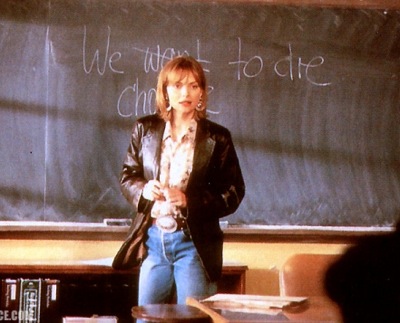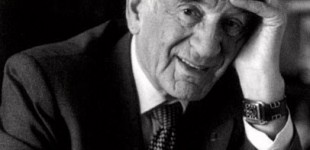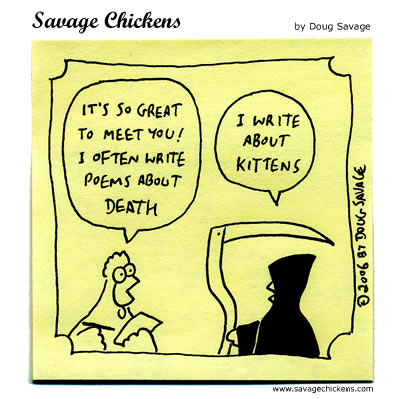Mortician’s Note:
Sheera Talpaz is the poet laureate of the Order. She has her MFA in poetry from Michigan, but is made to toil as a teacher for the fecund young minds of the greater Chicagoland area. Her desire to work with the Order comes from her own death anxiety, which she wrote about, quite brilliantly, here. This is the first essay in a series on the connection between Death & Poetry. Enjoy, deathlings!
THE DIRGE #1: AN INTRODUCTION TO DEATH IN POETRY FEATURING REGINALD SHEPHERD AND JAMES TATE
“Was this dude depressed or something?” asks one of my students as we discussed the reading assignment from the night before.
“No, he’s just a poet,” I reply.
“Oh, well he’s got a lot of emotions and stuff.”
“Yeah, that’s what it’s like to be a person.”
I’ve been assigning my students essays to read beyond the required and insipid composition texts. In the first few weeks of class, this includes literacy essays, all entitled “Why I Write,” because my little nihilists don’t see a point to anything, especially the punitive act of writing. I’ve been looking around for similar essays, including “Why I Read,” “Why I Think,” and “Why I Don’t Come 30 Minutes Late to a 50-Minute Class.”
In week 1, the students learned that George Orwell writes to engage with the political, week 2: Joan Didion writes to inflict herself on the reader, week 3: Elie Wiesel writes as duty, and week 4: Reginald Shepherd writes to immortalize the self and others. Week 4 marked the first time my students encountered a poet – probably ever. It went about as expected. That is, one young woman suggested it was okay for Elie Wiesel to be “dark” because he’d survived the Holocaust, but why was Shepherd so bleak w/no Holocaust in question?
“I write because I would like to live forever,” Shepherd begins, “the fact of my future death offends me.” Boom. But what does Shepherd mean and, what, does he really think his works will live on like he’s Homer or Shakespeare or or…? No, it’s only his ego speaking out in some sense, the same sense it speaks out in a great many artists – the idea of persisting, of holding on to things, of moving so as not to stop, of salvaging himself and whatever he can around him.
So we continued: art, in ultimate futility, seeks to achieve immortality both by capturing and making still a moment in time, as well as by living on after the artist’s death. We talked about the word “paradox” for a while. Some students became invested, others seemed bored, and one was like, “Yeah, death happens to everyone, we know this…” (Mental aside: Oh DO you know this? Because it happens to some faster than to others.)
Shepherd might have been the wrong choice for this particular group, given his propensity to name drop and write words like “aporia,” though the discussion at least ran a course. To be fitting, though, Shepherd mentions the idea of rescue and quotes from work by James Tate:
Rescue
For the first time the only thing you are likely to break
is everything because it is a dangerous
venture. Danger invites rescue – I call it loving.
We’ve got a good thing going – I call it rescue.
Nicest thing ever to come between steel cobwebs, we hope
so. A few others should get around to it, I can’t understand
it. There is plenty of room, clean windows, we start our best
engines, a-rumm . . . everything is relevant. I call it loving.
Damn, son, goddamn. This is one fine poem, though readers might easily underestimate its power. It could pass for some mundane thing next to the book’s title work, “The Lost Pilot.” No, this deserves the attention Shepherd gives it, the reminder that Tate, in the entire text, The Lost Pilot, contends with his father’s untimely death – that though it occurred in his infancy, Tate must try to salvage something from the wreckage. Shepherd’s poetry similarly focuses on the figure of his mother, a woman who never managed to escape a life of suffering and then quite simply died before Shepherd could “help” her. Like Shepherd suggests: we must engage in the futile work of rescue, despite our knowledge of its futility. He wrote his work about her even though she never lived to see it.
Can we therefore conclude that poets write about death and suffering because they encounter it more often? That’s doubtful. Is it because they’re particularly morbid? No, because death itself isn’t presented as bleak – it just is. Is every poem then truly about existence? Is every poet committed to staring down truth? To report back even the worst? These are some questions this series of posts seeks to understand.
Both Shepherd and Tate answer this question in closely connected regards. Shepherd writes because death is a problem never to be overcome. But that concession only fuels his pursuit of a kind of immortality. And because death is a – or even the – problem, because it brings disaster, Tate finds an occasion for loving. He finds the poem.
Art is thus an answer to death. Art is an admittedly unsatisfying answer to death.



